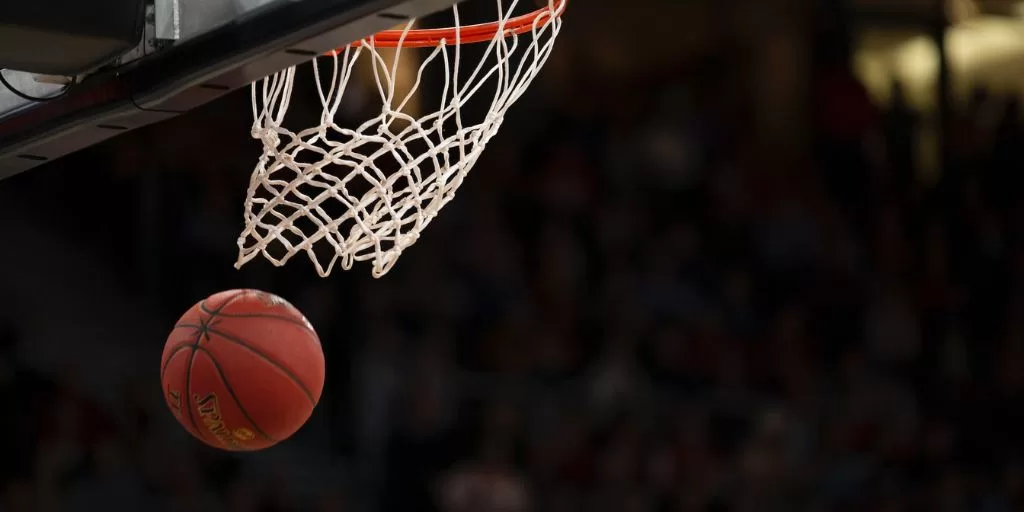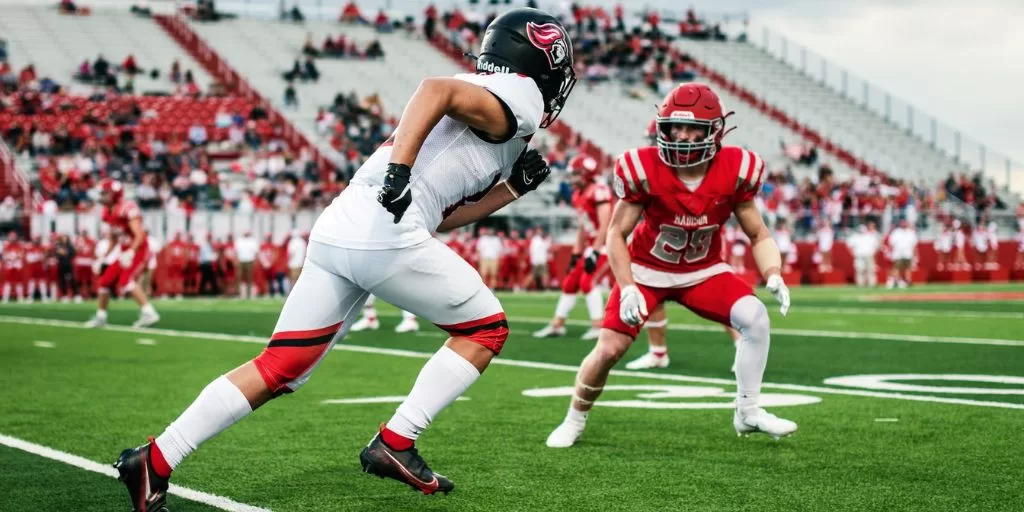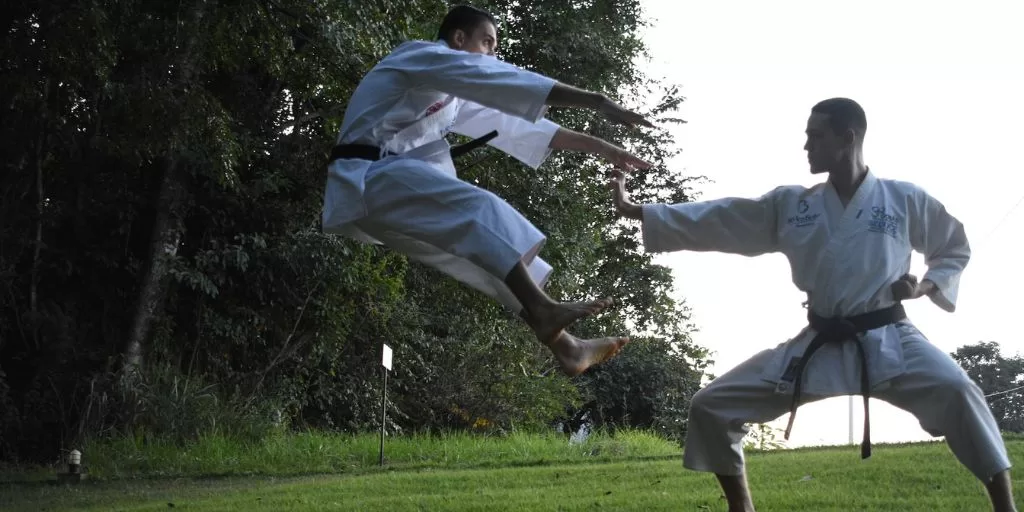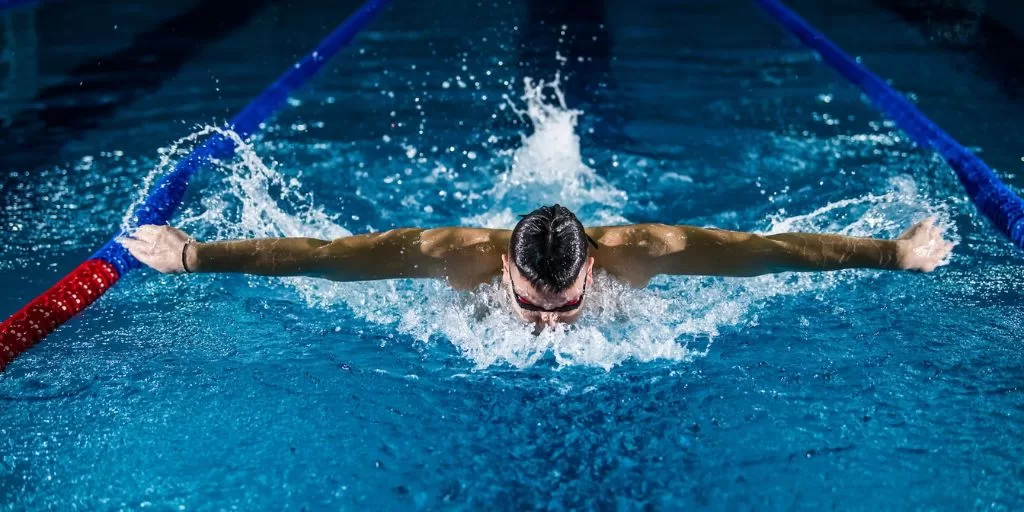Athletes are constantly working to achieve their peak performance level. But what if there was a way to train the mind, as well as the body? The power of the human mind is astounding and mental training techniques can have an incredible impact on athletic performance. In this article, we explore how athletes can unlock the powers of their minds and use them for optimal success by incorporating mental skills training programs into their routines. Through understanding these techniques, athletes can gain an edge over their competition and take their game to the next level. So keep reading – you may be surprised by what you learn!
Table of Contents
- 1 What Is Mental Training for Athletes?
- 2 Why Is Mental Training Important in Sports?
- 3 How Mental Training Techniques for Athletes Work?
- 4 How Athletes Can Benefit from Mental Training?
- 5 Affirmations: Mind Programming in Sports
- 6 Visualization: Imagery Training in Sports
- 7 Mind Control: Learn to Tame Your Thoughts
- 8 Stress Control: Master Your Hormonal Response
- 9 Advanced Techniques: Control Your Central Nervous System
- 10 Develop a Winning Mindset with Mental Conditioning
- 11 Mental Training and Its Effects on the Brain
- 12 Mental Training: Frequently Asked Questions
- 12.1 What Are Some Other Common Mental Training Techniques Used by Athletes?
- 12.2 How Can Athletes Effectively Use Mental Training to Improve Performance?
- 12.3 How Often Should Athletes Practice Mental Training?
- 12.4 Are There Any Potential Risks Associated with Mental Training?
- 12.5 Are There Any Specific Sports That Benefit More from Mental Training than Others?
- 13 Conclusion: Mental Skills Training Programs Are Vital for Professional Athletes
What Is Mental Training for Athletes?
Mental training for athletes is a relatively new concept, but it has been gaining traction in recent years. It’s an incredibly important part of any athlete’s journey to success and can give them an edge over their competition. Many believe that mental strength is just as important as physical conditioning when it comes to performing at top levels and achieving greatness. Mental skills training helps athletes understand how they are supposed to use their minds optimally during competitions or practice sessions.
To truly maximize this advantage, athletes need specific drills designed specifically for sports performance such as mental imagery training techniques and other mental preparation techniques for sports. These drills help players train their minds more effectively by teaching them how to control stress, focus on key elements of the game, stay motivated, keep perspective under pressure, and handle difficult situations with greater ease. By learning these useful mental training techniques for athletes, they can create a competitive edge while also improving overall confidence and expertise on the field or court.
The best way to achieve peak performance through mental strength training is through continual repetition of effective drills so that athletes become comfortable using them in real-time scenarios. This includes simple practices like visualizing themselves succeeding before games or taking deep breaths throughout playtime can have large impacts on results since the mind plays such a crucial role during physical activity. The most successful teams often combine both physical and psychological strengths into one cohesive unit which gives them the greatest chance of victory.
Athletes must find what works best for them mentally if they want to reach maximum performance potential every single day no matter who they’re playing against; whether it’s mastering certain routines or meditation exercises each individual athlete needs personalized strategies tailored for their own unique circumstances. With enough dedication, determination, and discipline anyone can gain mastery over their thoughts so that consistent optimal performances become second nature even when faced with adversity.
So in the case of an athlete, mental skills training definition is a set of mental exercises performed specifically to improve sports performance. Such practice may involve brain training to improve the cognitive skills vital for performance in sports, mental toughness techniques, and other mental training drills for athletes. Analogically, mental training exercises for athletes are exercises that are intended to improve one’s effectiveness in their sport and are practiced solely within the athlete’s mind.
Why Is Mental Training Important in Sports?
Although mental preparation techniques in sports are gaining popularity, many are still wondering why are they important and if they can actually make athletes play better.
Mental training for athletes is as essential to success in sports as physical fitness. Utilizing mental skills can be the difference between winning and losing – it’s that powerful! With this in mind, why is mental training important in sports? It turns out there are several key benefits associated with honing your mental game.
To start off, developing a strong mindset can provide an athlete with confidence and focus on the court or field. A positive attitude and belief in their own abilities will allow them to rise up against adversity and put forth their best performance regardless of any external factors. Additionally, psychological tools such as visualization techniques can help athletes develop better concentration levels and block out distractions during competition.
Furthermore, having the ability to control emotions is another major advantage of proper mental training for athletes. By increasing emotional intelligence through various exercises, athletes can remain calm even under intense pressure while staying motivated throughout tough times. This allows them to keep their composure when facing difficult opponents or challenging situations without becoming complacent or overwhelmed by nerves.
Finally, mastering one’s internal dialogue is also essential for athletic success because it helps prevent negative self-talk which often leads to poor performances due to a lack of motivation or fear of failure. Learning how to remain mindful of our inner voice gives us the insight we need to stay focused on our goals and achieve peak results in any sports activity that we pursue.
In essence, mental training plays a critical role in determining an athlete’s overall success both mentally and physically on the playing field – from enhancing focus and controlling emotions all the way down to improving self-confidence and banishing negative thoughts – it truly has transformative power! Now let’s look further into how these mental training techniques for athletes work…
How Mental Training Techniques for Athletes Work?

Sports and the mental game go hand in hand. While athletes often focus on physical training, it is important to recognize the role of mental preparation when striving for peak performance. How do mental training techniques for athletes work? It’s a question worth exploring.
Take tennis player Roger Federer as an example: he has been recognized as one of the best players ever to pick up a racket. His success can be attributed not only to his expert technique but also to his ability to remain focused during intense moments on-court – an outcome of cultivating strong mental skills over time through practice and dedication.
Mental training activities are designed to help sportspeople hone their concentration, develop resilience, stay calm under pressure, increase motivation levels, and build self-confidence – all qualities essential for top-level sporting achievement.
Here are some examples of how athletes can strengthen their psychological abilities:
- Mental imagery exercises – visualizing goal-setting scenarios until they become second nature
- Self-talk drills – replacing negative thoughts with positive ones
- Pre-performance routines – creating rituals that maximize confidence before competing
- Cognitive restructuring – reframing difficult situations into manageable tasks
- Relaxation techniques – learning methods such as deep breathing or mindfulness meditation for calming nerves
- Goal-setting processes – breaking down long-term objectives into achievable steps.
Developing these mental skills takes commitment and consistency, just like any other type of exercise routine. With the right approach, sportspeople have the potential to unlock untapped reserves within themselves that could make all the difference between victory or defeat on match day.
How Athletes Can Benefit from Mental Training?
Mental training techniques for athletes are like a toolbox of mental preparation and endurance tools that can help an athlete achieve peak performance. Just as physical conditioning is essential to the success of any athlete, so is developing the mental strength necessary to compete at their highest level. These techniques provide powerful benefits when used correctly, enabling athletes to unlock new heights in their athletic abilities.
The advantages of mental training for athletes range from improved focus and concentration during competition, increased confidence and motivation before events, better decision-making abilities under pressure, heightened awareness on the field or court, enhanced problem-solving skills in challenging circumstances, and improved resilience after setbacks or losses. Mental training techniques can also build the ability to recognize negative self-talk and thought patterns which can be barriers to optimal performance.
Some common mental training techniques include:
- Mental Preparation Techniques: Visualization exercises; goal setting; relaxation strategies such as deep breathing or progressive muscle relaxation; mindfulness meditation; cognitive reframing/thought replacement
- Mental Endurance Training: Increasing tolerance for stress and fatigue through repetition of drills or practice until mastery is achieved; increasing one’s threshold for discomfort (e.g. heat acclimatization); positive reinforcement techniques
- Mental Strength Training For Athletes: Developing inner dialogue (self-talk) scripts such as mantras or affirmations; building character traits related to sportsmanship; learning self-regulation strategies e.g., anger management approaches
In short, by utilizing effective mental training techniques athletes can attain greater clarity, control over emotions, and stable energy levels throughout competitions – helping them reach their full potential on the field or court. Whether it’s visualizing success prior to competing or mastering a technique despite exhaustion – these methods give athletes access to powerful resources they may not have otherwise realized were available within themselves.
Affirmations: Mind Programming in Sports

Mental training in sports has long been a subject of discussion and study, but how can athletes benefit from it? Affirmations are one way for athletes to improve their mental preparation for competition. It is an effective tool that helps them program their minds for success and reach higher levels of performance. Mental toughness training for athletes involves the use of positive affirmations and self-talk to help build confidence, increase motivation, and focus on goals.
The goal of using affirmative statements is to reprogram the subconscious mind with new ideas or beliefs that will serve as guidelines when competing in sports. This type of mental skills training in sports enables athletes to control emotions more effectively during pressure situations. By repeating these affirmations over time they become ingrained into the athlete’s thinking patterns, creating new confidence within themselves.
Athletes who regularly practice affirmation exercises report improved concentration, better decision-making abilities, heightened awareness, and greater feelings of relaxation under stress. They also experience increased optimism about their ability to perform well even when facing challenging opponents or difficult conditions. With regular practice, affirmations can be used as part of an overall approach toward achieving peak performance in any given event or activity.
Affirmative statements provide a powerful form of mental conditioning that allows athletes to take charge of their thoughts and develop a winning mindset before they compete. Through this process, they gain strength, resilience, clarity, and courage – all vital ingredients necessary for successful performance on the field or court. When combined with other forms of mental training such as visualization techniques, affirmation exercises can make key differences in helping athletes achieve their desired results…
Visualization: Imagery Training in Sports
Visualization is like a superpower. It’s the ability to access your innermost thoughts and manifest them into reality with just your mind – no physical effort required! In sports, it can be used as an incredibly powerful tool for mental training; enabling athletes to boost their performance by honing in on their cognitive skills and fine-tuning their performance mindset.
Performance mindset refers to how we think about ourselves and our abilities when competing or playing a sport. As with any skill, a performance mindset needs to be developed and maintained over time through consistent practice and repetition. Through visualization techniques, athletes are able to use their imagination to create images of themselves performing well in order to gain confidence going into competitions or games. This technique allows athletes to hone in on specific aspects of their game that need improvement, creating a more focused approach toward reaching peak athletic performance.
Mental training activities such as visualizing success help athletes build resilience against distractions during competitions which can often impede their ability to perform at optimal levels. Visualization also helps them develop strong self-awareness so they can better understand what works best for them while they’re out there competing. By using this form of brain training regularly, athletes become much more aware of how different strategies affect their overall outcome, allowing them greater control over how successful they will ultimately be on the field or court.
For anyone looking to maximize their potential in sports, visualization is an invaluable resource for helping you get the most out of yourself both mentally and physically. With regular practice, athletes can train their minds as well as their bodies to reach new heights of excellence – but it all starts with being able to visualize success first before anything else becomes possible!
Transforming from a mere thought into tangible action requires dedication and discipline but the rewards speak for themselves: improved focus, increased motivation, heightened awareness…the list goes on! By learning how to do mental training properly through visualization techniques, athletes unlock the potential within themselves that could take them even further than they ever imagined was possible!
Mind Control: Learn to Tame Your Thoughts
Did you know that up to 90% of a sportsperson’s success can be based on their mental strength and resilience? That makes mastering the art of mind control essential for any athlete striving for greatness. Luckily, there are several mental training techniques available to help athletes achieve this.
Mind control involves learning how to tame your thoughts and feelings so that they work in harmony with each other and support optimal performance during competition. This can be done through various methods such as positive self-talk, goal setting, and relaxation exercises. Sports psychology mental training techniques can help athletes develop an unshakeable mentality by teaching them how to stay focused even when faced with pressure or uncomfortable situations.
What is mentality in sports? It’s all about having the right attitude toward yourself and the game you’re playing. Developing a strong mindset means understanding what it takes to perform under pressure, being confident in one’s abilities, and trusting oneself to make smart decisions when needed most. The athlete’s mindset should also be centered around working hard, pushing boundaries, and believing anything is possible – no matter what challenges arise along the journey.
Mental toughness for athletes requires dedication to honing skills both physically and mentally; over time these will become second nature leading you closer to peak performance levels. Visualizing scenarios before competing can increase confidence while helping better prepare for potential setbacks or unexpected outcomes. The idea here is not just to think positively but rather accept reality without allowing negative emotions like fear or doubt to take away from focus or motivation during competition.
By gaining insight into our own thought patterns we can practice controlling our mindsets which leads us closer to achieving excellence within our chosen sport or activity – ultimately building ourselves up for long-term success! Stress control is another important factor every athlete must master if they’re looking to keep their heads on straight during intense moments of competition…
Stress Control: Master Your Hormonal Response
It’s no secret that athletes need to be able to control their stress and hormonal response in order to perform at a peak level. But how can they do this? It’s all about mastering the powers of your mind through psychological skills training sports, mental coaching for athletes, and mindful practices.
First off, it’s important that you understand the basics of mental practice in sports: using visualization techniques to create vivid images of success; learning relaxation strategies such as deep breathing exercises; developing positive self-talk toward oneself; and cultivating an inner mindset designed for optimal performance. This is often referred to as “mental training for peak performance”.
Second, there are several advanced techniques that you can use to increase your ability to control your hormones and manage stress under pressure – these include:
- Mindful sports performance enhancement – this involves focusing on being present in the moment rather than dwelling on past failures or worrying about future results.
- Training yourself not to get too excited or anxious when competing – by keeping calm and relaxed during competition, you will have better control over your body’s responses.
- Practicing meditation before events – this helps clear the mind so that it can focus on the task at hand without fear or anxiety getting in the way.
- Visualizing success beforehand – mentally rehearsing successful scenarios helps build confidence which is essential for performing well under pressure.
These methods may seem intimidating but they are actually quite simple once you become familiar with them. With consistent practice and commitment, it won’t take long until you begin seeing real improvements in both your physical and mental performance. As an added bonus, many athletes experience more satisfaction from their performances because they know exactly what it took them to achieve their goals! Now let’s move on to discussing advanced techniques for controlling our central nervous system…
Advanced Techniques: Control Your Central Nervous System
The power of the mind is a vast horizon for athletes to explore, an untapped reserve that can be harnessed for personal growth and success. With advanced techniques like central nervous system control, this mental training guide will help elite athletes unlock their potential in sports performance.
Just as a sculptor shapes marble with his chisel or a painter creates artwork with her brushstrokes, so do athletes use mental skills in sport to craft excellence. There are many tools available in the art of mental conditioning for athletes: visualization, relaxation exercises, self-talk – but few offer such unique results as controlling one’s central nervous system (CNS). The CNS consists of your brain and spinal cord and controls all voluntary movement. Learning how to access and command it has been shown to improve reaction time, reduce fatigue, enhance focus, and even create neurological pathways that lead to peak performance.
When using techniques such as biofeedback and neurolinguistic programming (NLP), athletes have unprecedented access to their body’s reactions – from heart rate variability through EEG monitoring – allowing them to observe what works best for them mentally. By developing this awareness they can practice various strategies during competitions which helps increase confidence levels on game day. This type of direct intervention into the brain training sports performance allows players to take charge of their own destiny when competing at higher levels than ever before possible.
It takes dedication and patience to learn how to become a sports mental coach or even master these skills for personal use, however, those who follow these steps not only develop winning mindsets with mental conditioning but also gain knowledge about themselves that translates beyond athletics – knowledge that can be applied throughout life’s journey as well. Moving forward into the next section we’ll look at specific methods used by professional coaches on ways to implement this newfound understanding into daily routines…
Develop a Winning Mindset with Mental Conditioning

Building a winning mindset is essential for athletes to perform at their peak. It’s the same as having a growth mindset in business or education – discipline and commitment that will lead to success. Mindset coaching in sports involves creating mental strength, self-confidence, clarity of thinking, and positive energy. But what exactly is the right mindset in sports? It’s the ability to focus on goals and stay motivated when faced with challenges. The mentality in sports refers to how an athlete approaches tasks such as training, competing, and recovering; it determines how well they can manage stressors during competition.
The goal of mental conditioning is to help athletes develop “elite mindsets” by teaching them effective strategies to better handle pressure situations. Mental conditioning helps athletes understand the importance of controlling their thoughts, emotions, and reactions so that they can remain focused on their goals when under strain. Furthermore, this technique trains the athlete to visualize desired outcomes before competitions so that they are mentally prepared for any challenge that comes their way.
Mental conditioning also includes developing resilience through visualization exercises where the athlete has visualized themselves overcoming adversity multiple times until it becomes second nature. This instills mental toughness which makes athletes more confident in high-pressure situations because they have practiced dealing with those scenarios beforehand. Additionally, mental conditioning teaches athletes how to recognize negative thoughts and replace them with empowering ones; this allows them to maintain a positive outlook regardless of setbacks or failures encountered along the way.
It’s important for athletes to be aware of how powerful our minds are and to harness their potential through mental conditioning techniques such as visualization exercises, emotional control strategies, and building resilience against failure. With these tools in place, athletes can build strong mindsets necessary for achieving excellence in performance. As we explore further into understanding the effects of mental training on brain function, it’s clear why elite teams invest heavily into developing these skills across all levels within their organizations.
Mental Training and Its Effects on the Brain
Mental training and its effects on the brain is an important concept for athletes to understand. It goes beyond just physical conditioning – mental skills training is necessary for optimal performance in any sport. Why is mental skills training so important? Mental conditioning helps athletes develop a winning mindset that can be applied to their sport.
The mindset of an athlete has a great deal of influence on their performance, both mentally and physically. Those who have adopted a growth mindset are more likely to take risks, learn from failure, and use challenges as opportunities for improvement. On the other hand, those with fixed mindsets tend to focus only on results and become discouraged when things don’t work out as expected. This kind of mindset can lead to burnout or even injury if not addressed properly through mental coaching or sports psychology sessions.
Mental training helps athletes recognize patterns, remember information more easily, and stay focused throughout their performances. This can help them become better players and make smarter decisions faster than they could before.
In addition to improving physical performance, mental training can also boost cognitive abilities as well. Studies have found that routinely practicing visualization and other forms of meditation can result in increased attention span, memory recall, problem-solving skills, and creativity. The overall effect of this enhanced mental capacity is improved focus and clarity when competing in a sport or performing any task requiring concentration. For example, by visualizing success before an event an athlete may be less likely to be affected by pre-game nerves or distractions during a competition resulting in better overall performance outcomes.
In addition to developing a positive outlook toward competition, mental training can also help athletes hone their attentional control and stay focused during times of stress. Being able to remain calm under pressure while still giving 100% effort will give athletes the edge they need against opponents with similar skill sets but lower levels of concentration and motivation. With proper mental conditioning, athletes can gain greater confidence in themselves which leads to improved performance overall.
By implementing effective techniques such as visualization exercises, goal-setting strategies, and relaxation techniques into your practice routine you can train your mind for athletic success. Taking time each day to reflect on what went well at practice and building upon it further strengthens the connection between body and mind thus allowing your potential to reach new heights. Whether competing against others or yourself by committing to daily practices you will find newfound purpose within every facet of athletics leading you one step closer to victory.
Want to learn more about this particular subject? Check out my other text on meditation and its effects on the brain.
Mental Training: Frequently Asked Questions

When it comes to athletes, the power of the mind can be just as powerful and influential as physical conditioning. As such, it is essential to understand how mental training works and how to best utilize it in order to get the most out of every workout.
Read on to learn the answers to frequently asked questions about mental training in sports.
What Are Some Other Common Mental Training Techniques Used by Athletes?
The power of the mind is a mighty tool for athletes, enabling them to reach new heights of physical performance. Just like any muscle in your body, mental training techniques can be used to build and strengthen one’s willpower and determination. When it comes to developing strong mental capabilities, there are many methods that athletes use to get ahead of the competition. In this section, we’ll explore some common mental training techniques used by athletes around the world.
If you have ever heard someone say “mind over matter” then you know what we mean when talking about mental strength. This idiom implies that with enough focus and dedication, an athlete can break through barriers previously thought impossible. To achieve this level of success, many athletes rely on visualization exercises as part of their regular routine. Visualization involves picturing yourself achieving goals or performing at a high level – essentially tricking your brain into believing these feats are possible! With practice and repetition, you will start to believe in your own abilities more than ever before. While I know that I have already talked about visualization, it’s the use of mental imagery techniques that makes the difference. To shed a bit more light on the case, mental training newbies typically use visualization as an arousal-regulation skill (e.g. they visualize becoming a wolf or tiger before the game or they imagine they are at the beach to relax after the game), advanced practitioners use mindfulness-acceptance approach to realize their sports goals. To give you a brief example, I used this technique with one of my athletes, Piotr Strzala, when he was preparing for the GPC World Bench Press Championships – I told him to imagine that he already won the competition last year and he’s just re-living the moment. This allowed him to kill the expectation to win (“I don’t care anymore” approach) and took a lot of stress off his shoulders which resulted in increased concentration, a clearer view of the situation, and increased self-confidence. The technique was called “retroactive enchantment” and I learned it from Peter J. Carroll – one of the most famous occult writers. If you want to learn more about using such techniques for improving human performance, I recommend reading my article about developing a winning mindset in sports so if you’re still wondering how does mindset affect performance, this text will help you understand the subject in detail.
The next one is progressive muscle relaxation. This is a technique used to reduce stress and increase relaxation. This technique can be beneficial for athletes in many different sports, as it helps the athlete relax their muscles and concentrate more on the task at hand. Progressive muscle relaxation involves tensing and releasing muscles in a systematic way while focusing on the area being relaxed. It begins with tensing up each part of the body, gradually progressing to all of them, before concluding with total relaxation. For athletes, this technique can help improve performance by reducing tension prior to an important event or competition. For example, progressive muscle relaxation can help relieve stress levels while preparing for a game or match by allowing the athlete’s body to relax deeply before they engage in their sport activity. Plus, this technique can also improve concentration and focus during physical activities by helping clear away distractions and negative thoughts that interfere with performance.
Another technique commonly employed by serious athletes is goal setting. By creating achievable milestones throughout the season (or any other timeframe), an athlete can stay motivated while tracking their progress toward greatness. Additionally, holding yourself accountable for meeting deadlines will help keep you on task – something all successful competitors understand well! Plus, giving yourself rewards along the way – such as taking a day off after hitting certain marks – provides incentive beyond just winning itself; it helps create a lasting motivation system within each individual athlete. The process of conscious goal setting by sportspeople can also be compared to building a growth mindset in sports. Developing a growth mindset is very important for athletes and there is no doubt about that. The mindset of elite athletes vastly differs from the mindset of casual players and this is because they train their minds just as they train their muscles – mental toughness training for sports allows them to acknowledge their weaknesses and set realistic goals they continuously realize – this is precisely how mental toughness helps athletes in improving their results.
Having a positive attitude plays an important role in maintaining confidence levels too – no matter how hard things may get during difficult moments or times when progress seems slow-moving. Staying optimistic will help push past doubts and fear while keeping your head up so that ultimately victory can be achieved! Taking time out from intense workouts or competitions also gives an opportunity to reflect on successes and failures alike without putting excessive pressure on oneself; having perspective is key here! Ultimately, all these tactics combined provide an effective foundation upon which any aspiring competitor can stand tall against challengers both big and small alike…and come out victorious every single time!
How Can Athletes Effectively Use Mental Training to Improve Performance?
Once again, what is mental practice in sport and how mental training helps athletes get better results?
Mental training and athletic performance are interconnected. Mental training is an essential part of any athlete’s toolkit, as it can be used to help improve performance. Mental training techniques are designed to give athletes the tools they need to better focus and manage their thoughts during competition. This type of mental preparation has been proven to provide tangible benefits for athletes in terms of improved concentration, confidence, motivation, and overall performance.
So how can athletes effectively use mental training to improve performance? One way is through specific mental preparation for athletes. Athletes utilize mental skills training activities and brain training to boost their cognitive skills. It allows them to become smarter than their competition. This, in turn, helps them achieve great things because they use their intelligence against their opponents and even if they are physically inferior to their competitors, they have another ace up their sleeve – their minds.
Another effective mental training strategy is mental rehearsal. Science has already proven that imagining performing a certain activity can improve the technique and effectiveness in real life. This is because the human brain doesn’t distinguish imagination from reality. Mental rehearsal is just one among many mental skills training tools and to give you a brief idea, it allows injured athletes to participate in training and maintain a proper technique even if they’re physically unable to attend training sessions so if you still can’t find the answer to why is mental skills training important – here it is!
Finally, pain management techniques and other mental toughness techniques are key elements in using mental training for enhanced athletic performance. Research proves that swearing can increase pain threshold and improve physical performance. Also, positive affirmations such as “I am strong enough” or “I will finish this race no matter what” serve as reminders that we have the power within us to accomplish great things despite the pain and push ourselves beyond our perceived limits. It is important for athletes to remember that just like physical strength, mental strength takes practice and dedication if optimal results are desired.
TIP: Athletes looking to incorporate mental training into their routine should start small – take 10 minutes out each day dedicated solely to visualizing success or engaging in positive self-talk – then gradually increase the time spent doing this exercise until it becomes second nature! By making sure they stay consistent with their practice over time, they will soon begin seeing real improvements in their game. And remember – if unsure of what to do exactly, it’s always better to speak to a sports psychologist, sport science practitioner, or athletic trainer. They should be able to provide their athletes with a tailored mental skills training program.
How Often Should Athletes Practice Mental Training?
The power of the mind is an often-overlooked but integral part of any athlete’s training regime. Mental training techniques, such as visualization and mental rehearsal, can have a profound impact on performance when used correctly. The question then becomes: how often should athletes practice these techniques to maximize their effectiveness? It’s like asking how much water one needs for a long voyage – a few drops won’t do; however, too much may drown you in its depths.
Visualizing success has been likened to daydreaming about it – if done frequently enough, positive results will follow suit. Like putting together pieces from a puzzle, constant repetition of goals through visualized scenarios helps athletes gain control over their emotions and reactions during games or competitions. This allows them to focus better on what matters most at the moment – winning! Additionally, regular mental rehearsals allow athletes to prepare for unexpected obstacles and challenges along the way so that they are ready no matter what lies ahead.
In order to get the best out of mental training techniques, there must be consistency within the practices themselves. As with physical exercises, frequent repetition provides tangible benefits in terms of skill acquisition and improvement. Thus, while some experts recommend daily practice sessions others suggest a once-a-week approach depending on individual preferences and time availability. Ultimately, athletes should strive toward attaining both short-term objectives (e.g. mastering certain skills in a specific timeframe) and longer-term goals (e.g. completing a large achievement such as winning an important competition).
To become proficient in any sport requires dedication and hard work across all aspects of preparation – including mental conditioning. Successful athletes understand this concept well and make sure to prioritize healthy habits which include mentally preparing for each competition by using suitable mental training techniques regularly throughout their careers. With consistent effort comes mastery; understanding how often to practice these methods is key to unlocking potential greatness within oneself.
So what’s the final conclusion on the mental training frequency?
Start training once a week and add another day when you adapt and are 100% convinced you can do more. With time and practice, you will finally get to the point where you can train on a daily basis but this is not your goal per se. Your goal is only to train just as frequently as it allows for optimal gains!
Are There Any Potential Risks Associated with Mental Training?
Like a rock climber scaling the face of a mountain, athletes that engage in mental training must be aware and prepared for any risks they may encounter. Mental training can help an athlete achieve their performance goals; however, there are certain potential risks associated with this form of practice. By understanding these potential dangers, athletes can make informed decisions about how to use mental training techniques safely.
First off, it’s important to recognize that overtraining is one of the main risks associated with mental training. Just as physical conditioning requires rest days, so too do activities such as visualizing success or practicing positive self-talk need moderation. Athletes should also consider whether they have enough support from coaches and trainers when engaging in mental exercises – pushing themselves too hard without proper guidance can lead to fatigue and burnout.
Another risk is cognitive overload. When attempting to learn new skills or visualize successes far ahead of time, athletes may become overwhelmed by all the information being processed at once. It’s essential that these types of experiences remain manageable for the individual – otherwise it could lead to confusion or even lack of motivation due to feeling overwhelmed by everything needed to succeed.
Finally, if not done correctly, some mental training techniques can backfire on an athlete rather than helping them reach their goals. Visualizations should focus on actually achievable objectives instead of unrealistic ones which only serve to create unnecessary pressure and stress for the athlete involved. Similarly, positive self-talk might provide short-term benefits but long-term use could result in feelings of guilt or shame if expectations aren’t met despite efforts made during mental exercises.
Mental training provides athletes with the opportunity to unlock a great potential within themselves, however, it’s important they take into account any possible risks before doing so. With thoughtfulness and care taken along each step of the journey toward success, an athlete will find themselves well-equipped for whatever challenges lie ahead while pushing boundaries and striving toward greatness!
Are There Any Specific Sports That Benefit More from Mental Training than Others?
Sports and mental training have a unique relationship. While physical performance is essential to success, the power of the mind can be just as influential in determining outcomes on the field or court. With that said, are there any specific sports that benefit more from mental training than others? This question deserves further exploration.
The answer may depend upon whether an individual athlete or team sport is being considered. For example, when it comes to individual athletes such as golfers or swimmers, focusing on techniques like visualization and goal-setting can help sharpen focus during competition. This type of mental training can also provide psychological advantages, improving confidence and self-belief which leads to better performance overall.
Team sports tend to require different approaches to mental training due to their reliance on a collaborative effort between teammates. Here, teaching players the importance of communication and trust can make all the difference in the successful execution of plays and strategies under pressure. Additionally, many coaches incorporate mindfulness practices into their teams’ workouts as a way to improve concentration before games as well as reduce stress levels within the group setting.
In short, both individual and team sports have much to gain from mental training techniques such as visualization, goal setting, communication-building exercises, etc., with each having its own set of benefits depending upon how they are applied strategically by coaches and athletes alike. Mental strength has become increasingly important in modern competitive sports and those who take advantage of these tools early often reap long-lasting rewards over time.
Conclusion: Mental Skills Training Programs Are Vital for Professional Athletes

Mental training techniques are essential tools for any serious athlete. The ability to train one’s mind is a powerful skill that can be used to gain an edge in competition and maximize performance. But how much attention should athletes pay to these mental training techniques?
Athletes must find the correct balance between physical and mental training, as too much of either can lead to fatigue or injury. It is also important to note that not all sports benefit equally from this type of training; some focus more on the technical aspects while others rely heavily on mental acuity.
Finally, it’s important to remember that there may be potential risks associated with using mental training methods, so athletes need to be mindful when practicing them. How far should they push themselves before crossing into dangerous territory? All these questions remain unanswered but provide valuable insight into what it takes to become a successful athlete.
P.S. If you are looking for a psychological skills training program for sports, I recommend taking a sneak peek at the mental training guide for elite athletes I prepared together with Josh Bryant and Adam benShea – this cutting-edge program provides the reader with all the essential mind training techniques and mental training exercises, explains the importance of mindset for athletes in detail, and teaches how to develop the predator mindset so you can win in sports and life!




